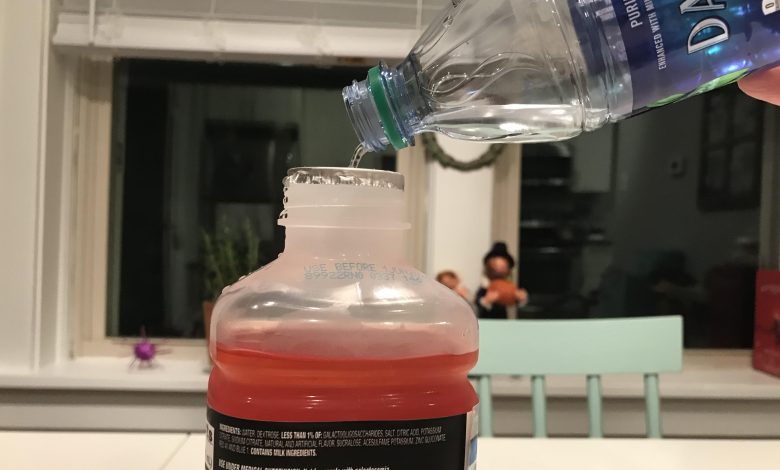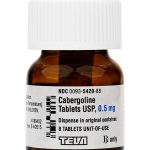How Long Does It Take For Pedialyte To Start Working?

When our body begins to metabolize a medication, different organs process the ingredients before they are finally released into the bloodstream. While the process may sound straightforward, different drugs dissolve at different rates, different formulas, and dosages break down differently – and, everybody’s body metabolizes medication uniquely. These are just a few of the many complexities behind the nature of drug absorption and metabolism.
The vast majority of medications are taken orally and are broken down within the gastrointestinal tract. Once the medication arrives, it is broken down by stomach acids before it passes through the liver and then enters the bloodstream. Certain medications may stay in the bloodstream longer – it all depends on the dosage and drug family consumed.
There are several factors at play when determining the overall time required for medication to fully digest. The following factors all impact an individual’s sensitivity to and absorption of medication:
• Age
• Weight
• Gender
• Time of day taken
• Level of physical activity
• Level of stress
• Content of stomach and PH level
• Presence of other medications
Gastric acids may prevent or slow the breakdown of certain medications. Additionally, when a medication is metabolized in the liver, its potency will decrease along with its effectiveness before the therapeutic reaches the bloodstream.
What is Pedialyte?
Pedialyte is a flavored, ready-to-drink, Oral Rehydration Solution used to replace fluids and minerals (such as sodium, and potassium) lost due to diarrhea and vomiting. It helps prevent or treat dehydration. Having the right amount of fluids and minerals is important for the normal functioning of the body.
Pedialyte is traditionally marketed as an over-the-counter (OTC) rehydration solution for children who have lost fluids and electrolytes due to diarrhea or vomiting.
Pedialyte is available as Unflavoured Pedialyte, Fruit-flavoured Pedialyte, Grape-flavoured Pedialyte, and Freezer pops Pedialyte.
How Pedialyte works
Pedialyte contains sugar, salt, potassium, and water. The water rehydrates you, while the sugar helps pull the salt and potassium into your body to replenish electrolytes that have been lost due to vomiting, diarrhea, sweating, or other causes of dehydration.
How much Pedialyte should a person take?
The amount of Pedialyte you should take depends on your weight. Toddlers, children, and adults should generally take 100 mL to 150 mL per kilogram of body weight (45 mL to 70 mL per pound) each day. Follow the directions provided with the Pedialyte product you are using. If you are also vomiting, start with small amounts of Pedialyte and increase this amount when the vomiting subsides.
Speak to your doctor or pharmacist about Pedialyte doses for your infant. If you are breastfeeding your infant, continue to do so while you are giving your infant an oral rehydration solution. Discontinue feeding for 24 hours if your infant is fed cow’s milk or milk formula.
Many things can affect the dose of medication that a person needs, such as body weight, other medical conditions, and other medications. If your doctor or pharmacist has recommended a dose different from the ones above, do not change the way that you are taking the medication without consulting your doctor.
How Long Does Pedialyte Take To Work?
Pedialyte can help replace fluids and electrolytes within a few hours of drinking it, however, the specific duration of time it takes for Pedialyte to work will depend on the severity of dehydration, the age and weight of the person, and other individual factors.
If you are taking Pedialyte for a hangover, it won’t reduce nausea, headache, or dizziness associated with the hangover, but can counteract the dehydration caused by alcohol within a few hours of drinking it.
For a severely dehydrated person, this may take a longer time, especially if the person continues to vomit or diarrhea is not controlled. It is important to continue to drink Pedialyte and other fluids as directed by a healthcare professional until the body is fully rehydrated.
If you or someone you know is experiencing symptoms of dehydration, it is essential to seek medical attention right away. Severe dehydration can be life-threatening and may require treatment with intravenous fluids or other medical interventions.
Tips to prevent dehydration
Hydration is very important to your body. Here’s how you can make sure you stay on top of your hydration game.
• Put water on your to-do list. Drink water every day, throughout the day. Don’t worry about a specific number of cups or ounces, just keep the water flowing.
• Know when you need more. Doing vigorous activity or even light activity in sweltering summer temps calls for more bevies. Drink more if you are sweating a lot or in hot temps.
• Beware of the dehydrators. Avoid sugar, alcohol, and caffeine if you’re having trouble drinking enough water.
• Drink more if you’re sick. Illness is notorious for sapping your energy *and* your fluids. Fever and gastro illness can dry you out. Extra water can also help thin out congestion and help your immune system clean things up.





